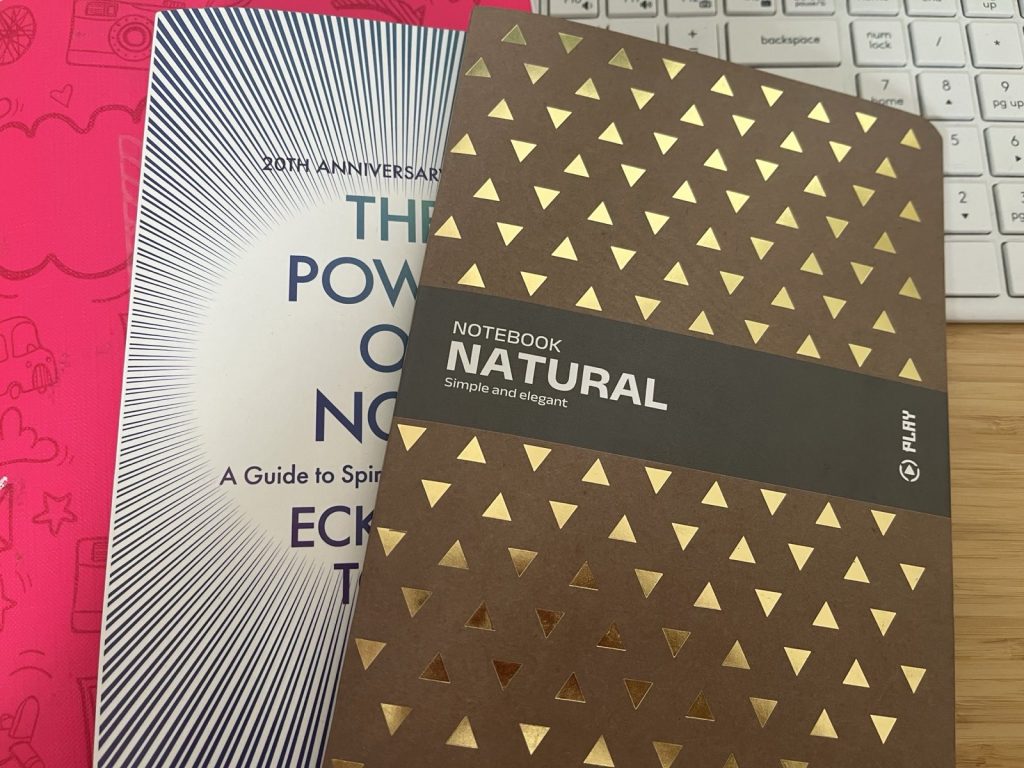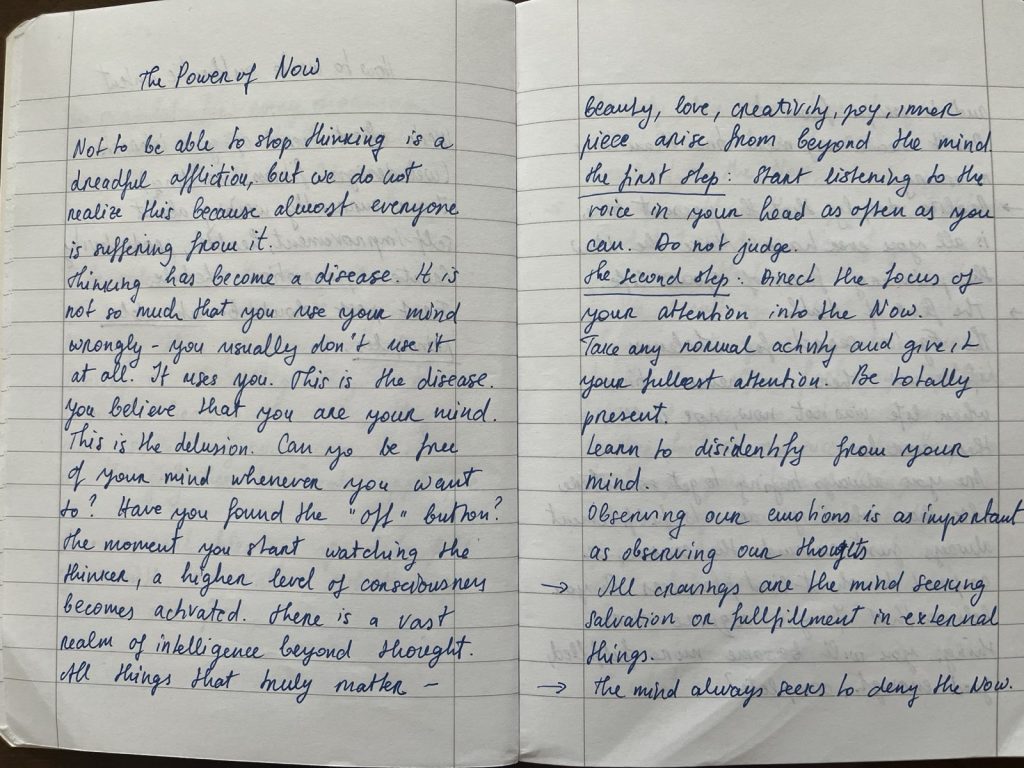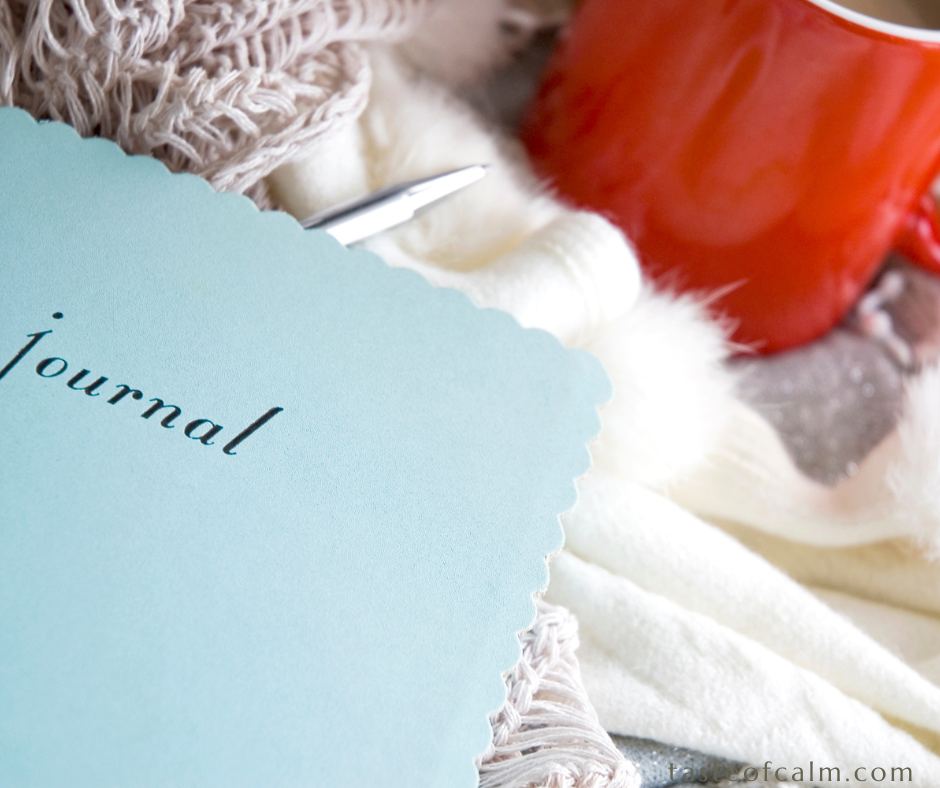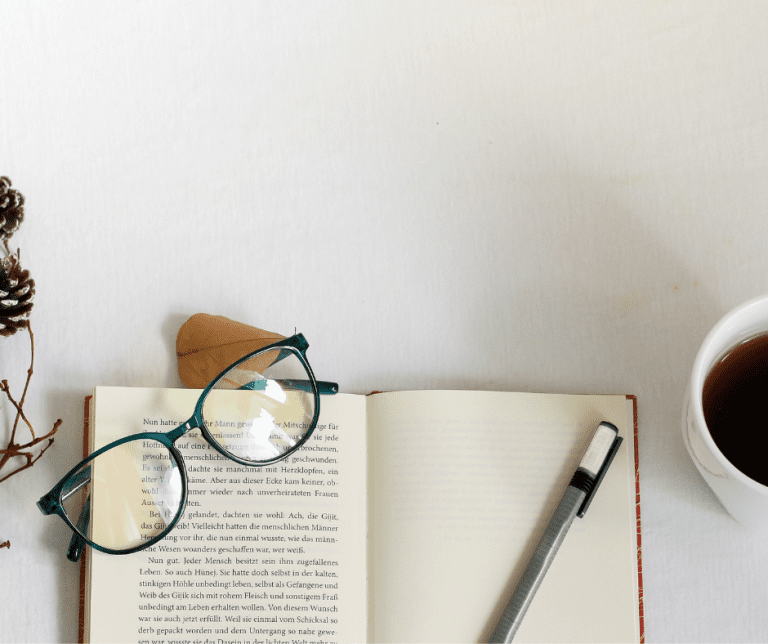How to start a reading journal
Struggling to find ideas for journaling? Here’s a simple yet powerful one: a reading journal.
When I started reading self-help books, I quickly realized that without writing down key insights, I would forget them. Some books contain ideas worth remembering, and others have sections I know I’ll want to revisit.
That’s why I created a reading journal, not just to track the books I’ve read, but to capture the ideas that truly resonate with me.
My journal is simple: a plain brown notebook where I write the book title and then jot down the key takeaways I want to keep. It’s an easy yet effective way to retain and reflect on what I read.

I usually read my books at my kitchen table. So I put my reading journal nearby and then as I encounter an important paragraph, I write it down.
Alternatively, if I read on the go, I like to mark important paragraphs in the book with my pen. Then when I finish reading and have enough time, I sit down and write down the sentences I marked as important.
What is a reading journal?
A reading journal is a notebook where you document your thoughts, reflections, and insights about the books you read. It helps you engage more deeply with the material, track your reading progress, and remember key takeaways.
I write down the quotes from the book I want to go back to, as well as some thoughts I have about the book.
Why do you need one?
There are many uses for a reading journal. If you are a student, you may want to take notes from a book in order to read them before your exam. If you are like me, you may want to go back to the most profound ideas you read because you want to remember them.
Some people use a reading journal to keep track of books they read. This motivates them to read more and accomplish their reading goals.
Whatever your motivation, I do believe strongly that a good reading journal encourages learning, personal growth, retention of information and ideas, and deeper engagement.
There is something about writing down thoughts that keep them forever in your mind.
What are the benefits of a reading journal?
I believe everyone would benefit from a reading journal.
Especially students, book bloggers, anyone who cares about personal growth and development, and everyone who wants to start journaling but is not sure what to write about.
Writing a reading journal:
- Improves retention and understanding: Writing about what you read helps solidify the main ideas and messages. You will remember key points much longer
- Enables deeper reflection: Instead of just finishing the book and moving on to the next one, you pause and take a moment to reflect on the book while you are filling in your journal. Did it introduce any new ideas, or change your perspective in any way?
- Encourages critical thinking: This is especially true if you write reviews about the books you read. Writing down your thoughts will make you think about what you have just read and give you richer insight into what you have just read.
- Makes reading more enjoyable: If you are someone who enjoys writing, not just reading, you will find that writing down your thoughts in your journal gives you a break from reading and a nice creative time to express your thoughts and ideas.
What do you need to start a reading journal?
Choose a format
You can choose a digital format or a physical one, but I always recommend writing as it gives you so many additional benefits than typing on your keyboards can.
You can use an empty notebook (like I do) or buy a premade reading journal. It all depends on what you plan to write about. And if you would prefer to have a space that you can use however you like.
I believe that an empty notebook is the best. I can write as much or as little as I want. For some books, I may even use 10 pages, and some books will only have 1.
My goal when I write the reading journal is to have a place where I can record the thoughts and ideas I believe are valuable and I want to reread at some point in the future.
Decide on your style
For me, making a record of the books I read is not that important. My reading journal is all about thoughts and ideas from the books I like.
However, the style and form of the reading journal depend on what you plan to write about. Some people prefer detailed book reviews, while others write casual reflections or list memorable quotes.
Set a routine
You can read a chapter and then write down your thoughts, or read and write at the same time.
If you use Kindle, you can also underline some sentences and transfer them later to your notebook. I also underline some parts in my books and later go back to them to write them down in my reading journal.
I do not have a firm routine with my reading journal. I use it on some days, and then I take a break if I am not reading anything special.
I find that a reading journal is not like my gratitude or morning pages journal. It does not need a fixed routine. I use it whenever I need to.
What can you include in a reading journal?
You can write down whatever you find important and want to remember. Here are some ideas:
Book details (title, author, genre)
First impressions before and after reading
Key themes and ideas
Favorite quotes or passages
Personal reflections on how the book impacted you
Connections to other books, experiences, or current events
Ratings or recommendations
Here are some reading journal prompts that can help you:
- Main themes or messages.
- Quotes that stood out.
- Lessons or insights I gained.
- How did this book make me feel?
- Did it challenge or change my perspective?
- Connections to my life or other books.
- Would I recommend it?
- Who would enjoy it most?
- What I plan to read next.
Conclusion

This is an example of my reading journal entry for the book Power of Now by Eckhart Tolle (you can find my review here).
If you’re like me and read a lot, it’s easy to forget the key takeaways from a book over time.
That’s where a reading journal comes in. It’s a space to capture the most important ideas and insights that inspired you, concepts that challenged you, or passages that resonated deeply.
At the end of the year, when you want to reflect on all the books you’ve read and the lessons they taught you, your journal makes it effortless. Just flip through its pages and revisit the wisdom you’ve gathered.
Related posts
Journaling: How to write morning pages






